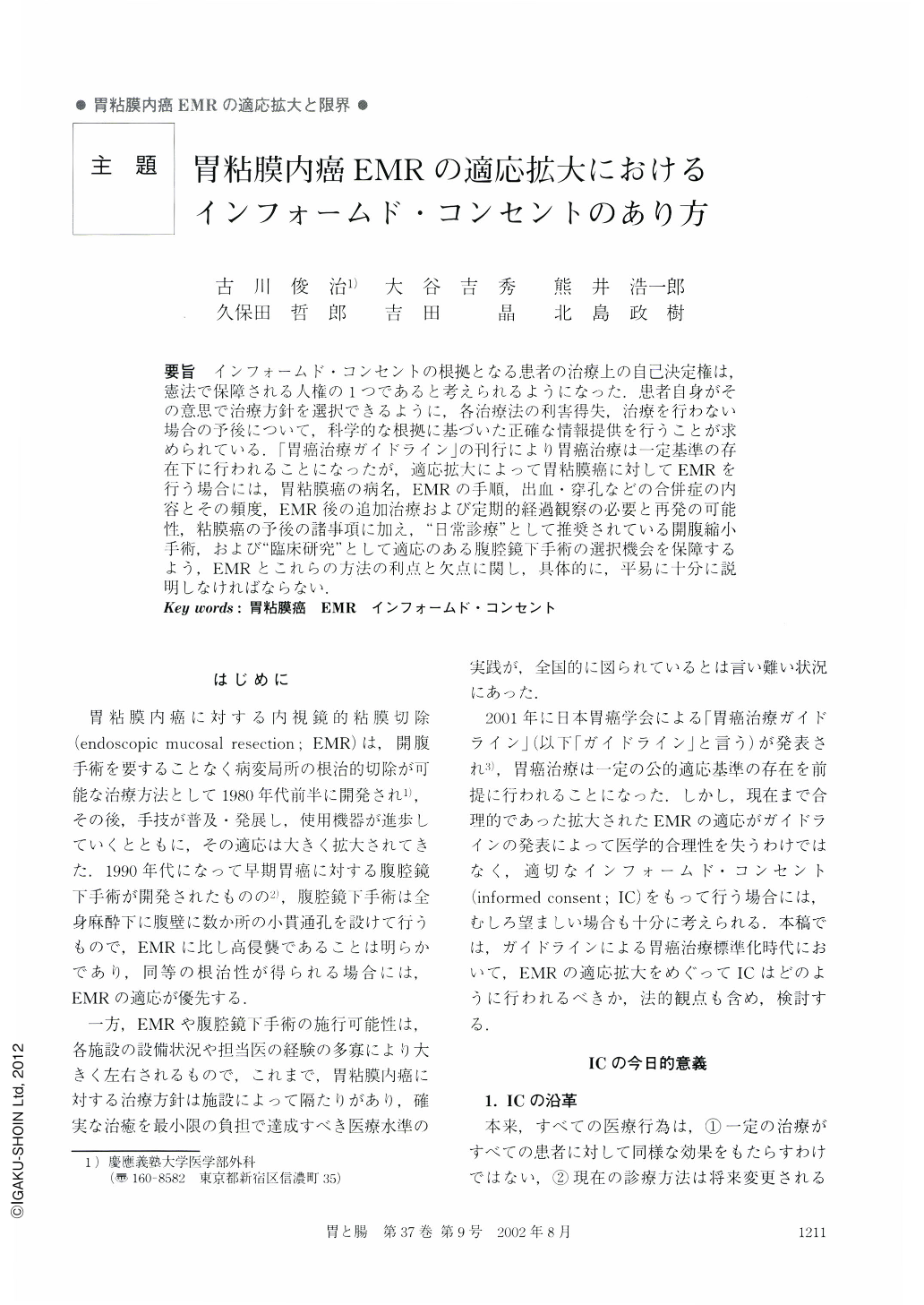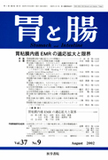Japanese
English
- 有料閲覧
- Abstract 文献概要
- 1ページ目 Look Inside
要旨 インフォームド・コンセントの根拠となる患者の治療上の自己決定権は,憲法で保障される人権の1つであると考えられるようになった.患者自身がその意思で治療方針を選択できるように,各治療法の利害得失,治療を行わない場合の予後について,科学的な根拠に基づいた正確な情報提供を行うことが求められている.「胃癌治療ガイドライン」の刊行により胃癌治療は一定基準の存在下に行われることになったが,適応拡大によって胃粘膜癌に対してEMRを行う場合には,胃粘膜癌の病名,EMRの手順,出血・穿孔などの合併症の内容とその頻度,EMR後の追加治療および定期的経過観察の必要と再発の可能性,粘膜癌の予後の諸事項に加え,“日常診療”として推奨されている開腹縮小手術,および“臨床研究”として適応のある腹腔鏡下手術の選択機会を保障するよう,EMRとこれらの方法の利点と欠点に関し,具体的に,平易に十分に説明しなければならない.
Patient's freedom of self-determination, the basis of informed consent (IC), has been considered as a fundamental human right secured by the Constitution. It is necessary to inform the patient accurately, based on scientific evidences, of the advantages and disadvantages of each treatment, and natural prognosis without treatment, so as to assure opportunities for self-determination by the patient. The Japanese Gastric Cancer Association issued the gastric cancer treatment guidelines (GL), and gastric cancer treatments have been carried out according to these standard indications. In case practitioners wish to perform endoscopic mucosal resection (EMR) on patients with gastric mucosal cancer, it is necessary to explain the name of the disease, procedures of EMR, details and possibility of known adverse effects including bleeding and perforation, need for additional treatment and follow-up because of the risk of recurrence, and natural prognosis of mucosal cancer. Moreover, in case practitioners are going to offer EMR as an optional treatment, it is necessary to explain sufficiently the advantages and disadvantages of other treatments, so as to assure opportunities for the patients to choose other available treatments including modified open gastrectomy, which is recommended as a standard treatment in GL, and laparoscopic surgery, which is also categorized as an optional treatment in GL.

Copyright © 2002, Igaku-Shoin Ltd. All rights reserved.


